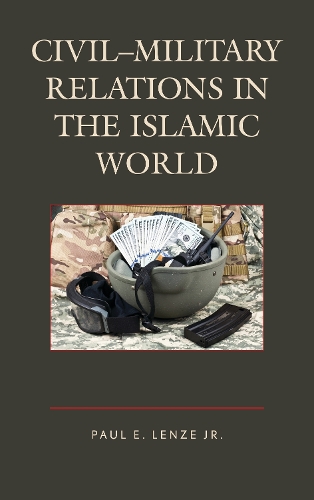
CivilMilitary Relations in the Islamic World
(Paperback)
Available Formats
Publishing Details
CivilMilitary Relations in the Islamic World
By (Author) Paul E. Lenze
Bloomsbury Publishing PLC
Lexington Books
15th August 2018
United States
Classifications
Professional and Scholarly
Non Fiction
Warfare and defence
322.5091767
Physical Properties
Paperback
222
Width 151mm, Height 220mm, Spine 17mm
340g
Description
Since the Arab Spring, militaries have received renewed attention regarding their intervention into politics of Middle Eastern and South Asian states. This book examines the factors which influence military intervention and withdrawal from politicsnamely, United States and Soviet/Russian economic and military aidand how this affects democratic transitions and consolidation. The militaries of Algeria, Egypt, Pakistan, and Turkey, have used nationalism to justify their interventions into politics while ensuring that withdrawal would only occur if national identity were protected. This book examines important states in the Islamic World which have experienced similar historical trajectories, briefly experimented with democracy, and had the military become a dominant institution in the state. All four countries differ in their levels of ethnic conflict, importance placed on the country by the international community, and internal security concerns. The common result of international influence on political development, however, is that the military will take a keener interest in politics and be more reluctant to disengage.
Reviews
This very timely book addresses the civil military relations in countries that will continue to be of significance for international relations and US foreign policy for years to come. -- Maryann Gallagher, University of Georgia
A valuable contribution by Lenze for students and policy makers alike. Lenze advances our understanding of civil military relationswhen and why they matterin a region of importance and instability. -- Joe W. Huseby, Washington State University
Through his empirically rich analysis of four cases, Paul Lenze explains military political interventions and withdrawals in the Middle East by showing how armed forces have sought to protect their corporate interests amid challenges posed by international political and economic pressures, domestic political strife, and internal military factionalism. The book is a fascinating contribution to our understanding of civil-military relations. -- Maiah Jaskoski, Northern Arizona University
Author Bio
Paul E. Lenze, Jr. is a senior lecturer in the Department of Politics and International Affairs at Northern Arizona University.
